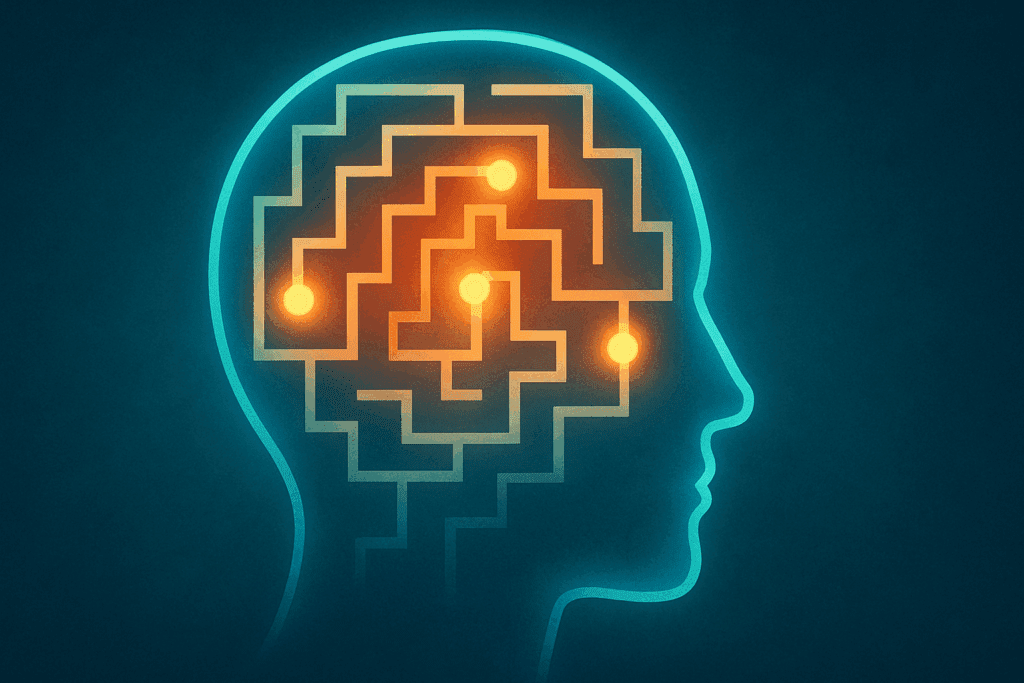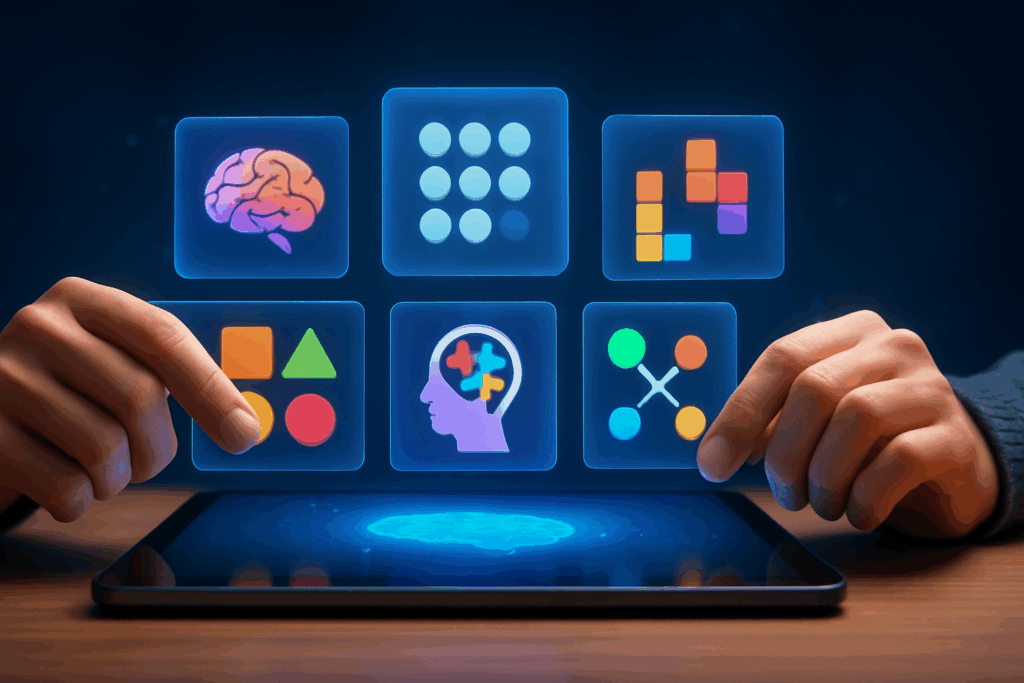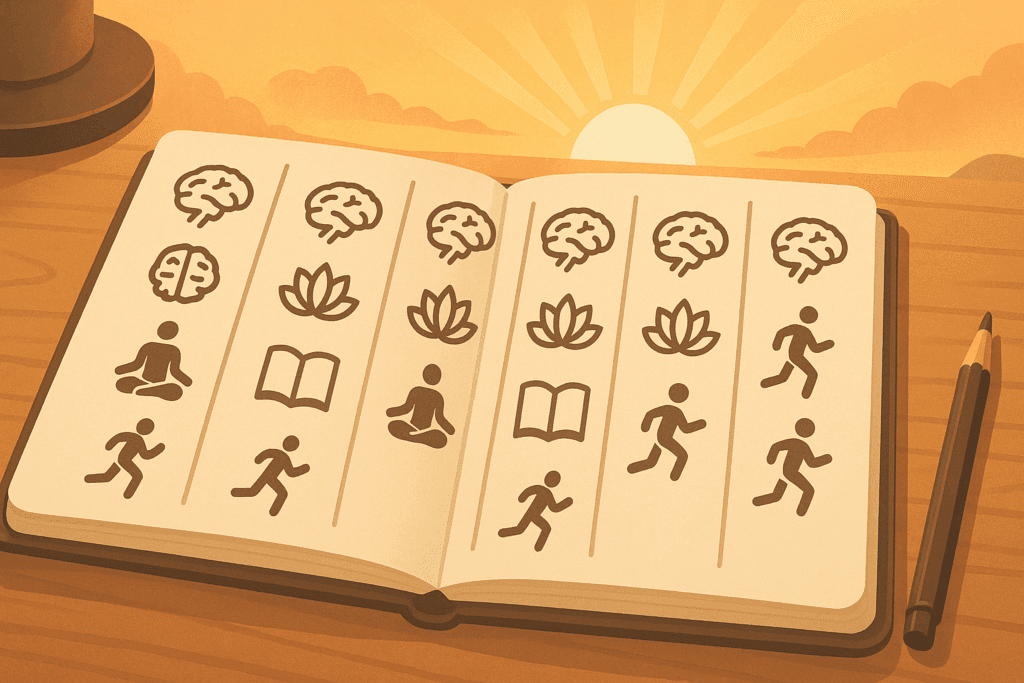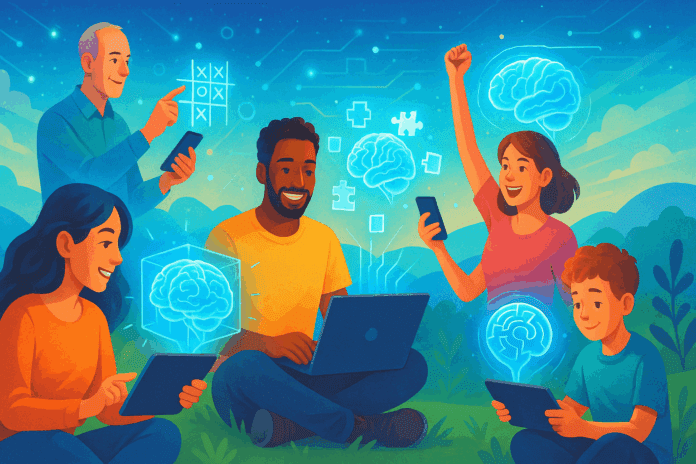
Understanding the Cognitive Benefits of Brain Training
In recent years, the growing interest in mental health and cognitive longevity has sparked a surge in the popularity of brain games. These digital tools, often packaged as free brain games online or in a brain games application, offer targeted exercises designed to stimulate various areas of the brain. Unlike passive forms of entertainment, brainy games engage the user in active problem-solving, critical thinking, and memory recall. For those seeking a way to sharpen their focus, preserve memory, and support emotional well-being, these tools represent an accessible and science-backed solution. Whether accessed through a browser or downloaded from app stores, these brain exercise games online provide a dynamic way to keep your mind sharp.
The mechanisms behind the effectiveness of brain games are rooted in the concept of neuroplasticity—the brain’s ability to adapt, change, and form new neural connections throughout life. This foundational principle supports the use of good brain games in enhancing executive functions such as attention control, planning, and working memory. As these games challenge the brain with increasing difficulty, they encourage the development of cognitive flexibility and resilience. In this context, brain workout app developers often incorporate real-time feedback, adaptive difficulty, and diverse challenges to maintain engagement while promoting measurable improvements.
For individuals seeking brain games free of charge, the accessibility of online platforms makes participation easy and convenient. Whether someone is at home, on a break at work, or even commuting, the ability to access free brain games online can turn idle moments into meaningful cognitive training sessions. By incorporating these activities into a daily routine, users can develop stronger cognitive habits that support both short-term performance and long-term brain health.
You may also like: Boost Brain Power Naturally: Evidence-Based Cognitive Training Activities and Memory Exercises That Support Long-Term Mental Health

How Brain Games Improve Focus and Attention Span
Focus is an essential skill in today’s fast-paced digital world, and attention span is often the first casualty of modern multitasking. Brain games designed to enhance focus can help individuals rebuild their capacity for sustained attention. These games often challenge the player to track multiple elements, respond to changing rules, or prioritize tasks—activities that directly target the prefrontal cortex, the brain region responsible for focus and decision-making. The best brain training apps provide these exercises in intuitive, enjoyable formats, making them suitable for both younger users and adults alike.
Studies suggest that using a brain workout app consistently can lead to notable improvements in attention control. This is especially true for brain games for adults online that simulate real-world challenges requiring continuous attention. Over time, these cognitive exercises help reduce susceptibility to distractions and improve the efficiency of information processing. Unlike traditional learning, where the rewards are long-term and abstract, brain games deliver immediate feedback, which is crucial for learning reinforcement.
Moreover, when users engage with free brain games for adults without downloading, they can experience these benefits without the barrier of storage space or software installation. This increased accessibility encourages routine engagement, which is vital for lasting improvement. The best brain fitness apps also include tracking features, allowing users to monitor their progress and adjust difficulty levels according to their cognitive needs. Through these personalized and adaptive experiences, individuals can steadily increase their focus capacity and overall attention span.

The Role of Brain Games in Enhancing Memory
Memory enhancement is one of the most compelling reasons individuals turn to brain games. Whether the goal is to recall names, remember instructions, or retain complex information, memory training can significantly improve daily functioning. Free brain games online offer a variety of memory-based exercises, such as pattern recall, word associations, and spatial memory tasks. These activities stimulate the hippocampus, the area of the brain associated with memory formation and retrieval.
Top-rated brain training apps leverage repetition and spaced learning techniques, which are scientifically proven to strengthen memory pathways. By repeatedly challenging the user with similar but slightly varied tasks, these apps reinforce neural connections and reduce cognitive decline. Many of the best memory apps include visual, auditory, and linguistic components to cater to different learning styles and cognitive strengths.
Using brain-free platforms doesn’t mean compromising on quality. Many of the best free brain game apps incorporate clinical research into their design. These platforms offer games that mirror cognitive rehabilitation exercises used in neuropsychology clinics. Over time, engaging in daily brain games can translate into better academic performance, increased workplace efficiency, and improved quality of life.
For adults, memory training is particularly valuable as the brain ages. By incorporating brain exercise games online into their routines, older adults can delay age-related memory decline. Memory enhancing apps also support younger users who want to sharpen their recall for academic or professional goals. Regardless of age, consistent use of a brain training app can build stronger memory recall, faster processing speed, and enhanced mental clarity.
Mental Wellness and Emotional Benefits of Brain Games
Beyond cognitive improvements, brainy games have significant emotional and psychological benefits. Engaging regularly with the best brain workout apps can serve as a form of mental self-care, offering moments of focused relaxation that reduce stress and anxiety. These games can promote mindfulness by encouraging users to stay present and attentive to the task at hand, which indirectly supports emotional regulation and stress management.
Several studies have highlighted the mood-enhancing effects of brain games. The sense of accomplishment that comes from progressing through levels or improving scores activates the brain’s reward system, releasing dopamine and promoting feelings of satisfaction and motivation. In this way, free brain games online serve not only as cognitive tools but also as emotional enhancers that contribute to overall mental health.
Incorporating daily brain games into a self-care routine can foster a sense of structure and achievement. For individuals dealing with anxiety or mild depression, the act of engaging with a structured brain games application can create a sense of routine and control. These games provide a healthy distraction from rumination and negative thought patterns while still delivering measurable cognitive benefits.
Platforms that offer brain games free often provide users with customizable goals and challenges, making it easier to align gameplay with personal wellness objectives. Whether it’s improving mood, building self-esteem, or simply enjoying a moment of lighthearted challenge, brain games contribute to a well-rounded approach to mental wellness.

Evaluating the Best Brain Training Apps and Platforms
The digital marketplace is saturated with cognitive training tools, making it essential to identify the best brain training apps based on science, usability, and personalization. Among the top-rated brain training apps, many are grounded in neuroscience and developed in collaboration with cognitive scientists. Features such as adaptive learning algorithms, progress tracking, and diversified game types are markers of high-quality platforms.
When evaluating a brain workout app, it’s important to consider the specific cognitive domains it targets. Some apps focus more on memory and processing speed, while others prioritize attention, reasoning, or language skills. The best brain fitness apps offer a well-rounded approach, ensuring balanced development across various mental faculties. For users seeking good brain games that match their unique needs, selecting platforms with customizable options is key.
User experience also plays a critical role. Engaging graphics, intuitive navigation, and minimal ads contribute to sustained use. Many brainy games apps are designed with gamified elements such as badges, leaderboards, and streak counters that maintain motivation over time. For those interested in the convenience of on-the-go training, the best brain training apps are mobile-optimized and available across both Android and iOS platforms.
For individuals who prefer not to download software, there are numerous high-quality free brain games for adults without downloading. These platforms often run smoothly in modern web browsers and maintain many of the same features found in downloadable apps. Whether through an app or a website, a consistent training schedule can make a measurable difference in cognitive resilience and daily performance.
Spotlight on Lumosity and Other Leading Platforms
One of the most well-known names in the field of digital cognitive training is Lumosity. But what is Lumosity, and why has it become a benchmark for brain game quality? Lumosity is a brain games application that provides scientifically designed tasks targeting memory, attention, flexibility, and problem-solving skills. Developed by neuroscientists and validated through peer-reviewed studies, Lumosity has earned a reputation for credibility and effectiveness.
What sets Lumosity apart is its use of adaptive difficulty, where the challenge level increases or decreases based on the user’s performance. This dynamic adjustment keeps the brain in a state of optimal learning without causing frustration or boredom. For those asking “what is Lumosity” in the context of mental health, the answer lies in its ability to provide enjoyable yet effective cognitive stimulation.
In addition to Lumosity, other top brain training platforms include Peak, Elevate, and CogniFit. These apps are considered some of the best free brain game apps due to their rich content libraries and evidence-based game design. Peak, for instance, offers daily brain games personalized to the user’s strengths and weaknesses, while Elevate focuses on communication and analytical skills, making it ideal for professionals.
Each platform has its unique strengths, and users should explore different options to find the best fit. Whether through a brain workout app like CogniFit or using free brain games online via Peak’s web version, the goal is to find a sustainable, enjoyable method of cognitive enhancement that fits seamlessly into daily life.

How to Create a Sustainable Brain Training Routine
The effectiveness of brain training depends not only on the quality of the app or game but also on how consistently it is used. A sustainable brain training routine involves setting realistic goals, maintaining consistency, and integrating game play into existing daily habits. The best brain training apps include reminders and streak features that help users stay on track without feeling pressured.
To start, identify which cognitive areas you’d like to strengthen. For example, if memory improvement is a priority, focus on the best memory apps that offer targeted exercises in recall and recognition. If attentional control is your goal, choose brainy games that require sustained focus and rapid decision-making. Tailoring your routine ensures that your time investment delivers maximum benefit.
Another critical factor is variation. Just as physical fitness benefits from cross-training, cognitive health improves when the brain is challenged in different ways. The best brain workout apps rotate between different skill sets to avoid mental plateaus. Many users find it effective to dedicate 10 to 15 minutes per day to these exercises, gradually increasing the time as the brain adapts.
A consistent routine can also include reviewing progress. Most top-rated brain training apps allow users to view performance graphs, track achievements, and set new goals. This feedback not only reinforces improvement but also builds a sense of accountability and motivation. The key is to treat brain training as a lifestyle component—not a one-time solution.
Why Accessibility and Cost Shouldn’t Be Barriers to Brain Health
One of the most promising aspects of this field is the widespread availability of brain games free of charge. Whether through websites or mobile apps, users can access quality cognitive training without a financial commitment. Free brain games for adults without downloading are especially appealing to those with limited storage space or older devices.
This democratization of cognitive tools has major implications for public health. People from all socioeconomic backgrounds can now take proactive steps toward improving focus, memory, and mental wellness. Platforms that offer free brain games online eliminate many traditional barriers to mental fitness by providing universally accessible content.
Importantly, quality is not always tied to cost. Some of the best brain fitness apps offer free versions that are backed by neuroscience and tested for effectiveness. Developers often provide freemium models, where users can access core functions at no cost and pay for premium features only if desired. This flexibility ensures that financial constraints don’t hinder access to brain health tools.
As more people recognize the value of cognitive training, demand for brain games free of subscriptions or paywalls will continue to rise. Fortunately, developers are responding by creating high-quality, research-informed content available at no cost. This trend reflects a growing awareness that brain health should be as accessible and prioritized as physical health.
Frequently Asked Questions: Enhancing Mental Health with Brainy Games
1. What are some lesser-known benefits of regularly using free brain games online?
While most people understand that brain games can improve memory and focus, a lesser-known benefit is their ability to train metacognition—your awareness and understanding of your thought processes. This level of mental insight can improve decision-making and enhance emotional intelligence, particularly when you consistently use brainy games. Regular engagement with free brain games online also supports cognitive pacing, helping individuals better manage the speed at which they process information, which is crucial in high-stress environments. Another benefit is the development of visual-spatial reasoning, which can translate into improved navigation skills and better understanding of physical space—important for tasks ranging from driving to learning a new sport. Lastly, incorporating free brain games into your daily habits can help reduce cognitive fatigue as they promote structured mental exertion followed by natural periods of rest, supporting a more balanced mental rhythm.
2. Can brainy games support neurodiverse individuals or those with cognitive impairments?
Yes, brainy games are increasingly being used in both research and therapeutic contexts to support neurodiverse individuals. People with ADHD, for example, often benefit from the structured challenges found in free brain games online, which promote attention control and working memory. For individuals on the autism spectrum, certain visual and pattern-based games can enhance cognitive flexibility and reinforce predictability in thinking. Moreover, some brain games free from complex narratives are ideal for users with language processing disorders or mild cognitive impairments, allowing them to focus on logic and pattern recognition without linguistic barriers. Developers are now designing more inclusive, brain-free applications that allow users to customize difficulty levels, game speed, and stimuli sensitivity, which makes these tools especially valuable for a broader spectrum of cognitive profiles.
3. How do free brain games online affect brain development in children versus adults?
Children and adults derive different cognitive advantages from playing brainy games. In children, brain development is still highly plastic, meaning free brain games online can significantly shape neural connections related to learning, language, and executive function. These benefits are especially critical in developmental windows when certain cognitive skills are rapidly forming. Adults, on the other hand, tend to use brain games more for skill maintenance and enhancement rather than foundational development. For older adults, such games can offer protective effects against age-related cognitive decline, particularly in areas like short-term memory and decision-making. Thus, while the neural mechanisms differ by age group, both children and adults can leverage brain-free tools to support their unique cognitive needs at various life stages.
4. Are there social or interpersonal benefits to using brain games regularly?
Engaging in brainy games isn’t just a solitary cognitive exercise—it can also enhance social interaction and communication. Multiplayer formats available through many free brain games online allow friends or family to collaborate and compete, fostering bonding and shared experiences. These interactions promote not only cognitive flexibility but also social empathy, especially in cooperative formats that require turn-taking or team-based problem-solving. Brain games free from violent or high-pressure themes can also serve as inclusive tools during family gatherings, offering a mentally stimulating alternative to passive screen time. Moreover, seniors in community settings or assisted living facilities often benefit socially and emotionally from brain-free gaming programs that double as opportunities for interaction, storytelling, and laughter, thereby supporting both mental and emotional wellness.
5. How do developers ensure the scientific validity of brainy games?
Credible developers typically consult neuroscientists, psychologists, and cognitive researchers during the design process to ensure the validity of brainy games. This often includes testing free brain games online in controlled studies to measure changes in attention, memory, or processing speed before launching them to the public. Peer-reviewed validation is a gold standard, although not all brain games meet this criterion. In many cases, metrics like reaction time, cognitive load, and error correction are built into brain-free applications to provide real-time insights into user performance. Additionally, developers often update their platforms based on user data analytics and ongoing research, refining game algorithms to enhance both engagement and effectiveness, thereby aligning digital play with cognitive science.
6. Are there any cognitive drawbacks to overusing brain-free platforms?
While brainy games can offer significant cognitive advantages, overuse or reliance on them without balance may result in diminishing returns or even mental fatigue. Excessive focus on free brain games online without integrating other forms of cognitive stimulation—like reading, physical activity, or social interaction—can create a narrow training effect, where only specific skills improve. Additionally, individuals who spend too much time on free brain games may miss out on the emotional and contextual learning that real-life problem-solving provides. Another potential issue is the “illusion of competence,” where users believe they are mentally fit because of high game scores, even though practical cognitive function in everyday settings may not match. For brain-free tools to be most effective, they should be part of a holistic cognitive wellness plan that includes sleep, nutrition, exercise, and real-world engagement.
7. What are some strategies to maximize the impact of free brain games online?
To get the most out of free brain games online, users should approach them with specific goals in mind—such as improving memory, enhancing problem-solving skills, or strengthening focus. Rotating through different types of brainy games ensures a well-rounded cognitive workout, targeting various functions like visual processing, verbal reasoning, and multitasking. It’s also beneficial to track progress over time; many brain-free platforms offer performance dashboards or insights that allow users to see areas of improvement or stagnation. Adding a reflective component, such as journaling about challenges encountered during gameplay, can deepen learning and encourage metacognitive awareness. For sustained cognitive gains, it’s essential to integrate free brain games into a consistent daily or weekly routine, paired with complementary activities like reading or mindfulness training.
8. How do brainy games influence emotional regulation and stress resilience?
Though not a substitute for formal therapy, brainy games can act as practical tools for emotional regulation and stress resilience. Many free brain games are designed with calm, minimalist interfaces and soothing soundtracks that promote relaxation while still offering cognitive stimulation. Engaging with such brain-free content can activate parasympathetic nervous system responses, which help reduce stress hormones like cortisol. Some free brain games online also feature mood-tracking components or personalized difficulty settings that adjust based on the user’s mental state, making the experience adaptive and non-overwhelming. Moreover, achieving small, consistent successes within these games boosts self-efficacy and can interrupt cycles of negative thought, creating a more stable emotional baseline over time.
9. What emerging trends are shaping the future of brain-free applications?
The next frontier of brainy games is being shaped by artificial intelligence, biometric feedback, and augmented reality. AI-driven free brain games online can now adapt dynamically in real-time to user performance, creating increasingly personalized experiences that promote accelerated cognitive growth. Brain-free apps are also beginning to incorporate biometric data—like heart rate variability and pupil dilation—to monitor stress levels and tailor game intensity accordingly. With the rise of wearable tech, free brain games could soon be integrated into smart glasses or VR platforms, offering immersive environments for spatial reasoning and real-world task simulation. These innovations not only deepen user engagement but also offer data-rich insights for cognitive researchers, potentially revolutionizing how we measure and support brain health.
10. Can brainy games contribute to workplace productivity or professional development?
Brainy games are increasingly being incorporated into professional development programs and workplace wellness initiatives. By improving executive function, attention control, and decision-making speed, brain games can enhance core competencies essential for productivity. Some companies have begun offering access to premium or curated free brain games online as part of their employee mental wellness resources. These platforms can also serve as team-building tools when adapted for group play, fostering communication and strategic thinking. Brain-free apps are especially valuable for professionals in high-stakes fields like finance, medicine, or aviation, where split-second decisions and sustained mental clarity are non-negotiable. Used strategically, brain games can be more than just cognitive exercises—they can be practical performance enhancers in real-world professional settings.
Conclusion: Embracing Free Brain Games as a Path to Mental Vitality
The growing body of research and user experience surrounding brain games highlights their undeniable potential to improve cognitive and emotional health. By leveraging platforms that offer free brain games online, individuals from all walks of life can take control of their mental well-being in a fun, accessible, and science-based way. These games offer more than just entertainment—they are tools for resilience, clarity, and lifelong learning.
Whether your goal is to improve memory through the best memory apps, boost focus with the best brain workout apps, or simply enjoy the benefits of a brain games application in your free time, the path to better brain health is within reach. With an abundance of brain games free and ready to use, it has never been easier to commit to daily brain games that strengthen your mind and support your emotional balance.
From casual browser-based games to top-rated brain-training apps, the possibilities are wide-ranging and adaptable to any lifestyle. As long as you remain consistent, curious, and open to growth, these tools can become an integral part of your wellness journey. So, whether you’re exploring what Lumosity is, testing the best brain-training apps, or diving into free brain games for adults without downloading, remember that your brain deserves the same attention and care as the rest of your body—and now, it can get it for free.
Further Reading:
15 Free Brain Exercises for Memory
Improve Memory and Focus: The Benefits of Free Brain Training Games Online


